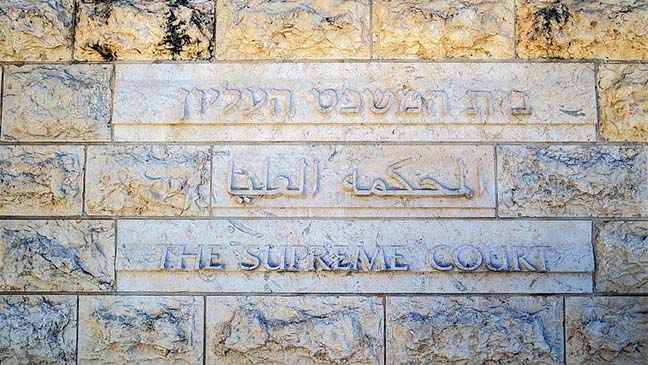Defunding UNRWA: What It Means
News in August that the United States would stop its $300 million annual funding of the United Nations Relief and Works Agency set off different reactions — would it be the start of a humanitarian crisis, or the removal of a major barrier to a Middle East peace agreement?
What is UNRWA?
The United Nations Relief and Works Agency was formed in 1949 to provide education, health and social welfare services to “persons whose normal place of residence was Palestine” from 1946 to 1948, “and who lost both home and means of livelihood as a result of the 1948 conflict.”
Then what is the United Nations High Commissioner for Refugees?
That is the U.N. agency that assists all other refugee groups around the world. In January, Israeli Prime Minister Benjamin Netanyahu called on the UNHCR to take over the UNRWA’s mandate, saying UNRWA “perpetuates” the Palestinian refugee problem.
What is the difference?
The worldwide group seeks to resettle refugees as quickly as possible if they can’t return to their home countries, while UNRWA is mandated to maintain the refugee population and not look to resettle Palestinians. Also, unique to UNRWA, descendants of the up to 700,000 Arabs who fled during the 1948 Israel War of Independence — which they refer to as the Naqba, the “catastrophe” — are classified as refugees, even if they have been resettled elsewhere and have become citizens of those other nations. That is partly why many Arab states do not extend citizenship to Palestinians, even if they have lived there for decades.
A former UNRWA advisor said if the UNHCR criteria were applied to the Palestinians, the “refugee” count would fall from around 5.5 million to perhaps half a million. Losing refugee status would be over 2 million in Jordan, the 2.2 million under Hamas or Palestinian Authority rule in Gaza and the territories, and the majority of the half-million each in Syria and Lebanon.
Other estimates say that if one counts only those who actually fled in 1948, the number who are still living is in the tens of thousands.
Also, the staff of UNRWA is much larger than the agency that handles the rest of the world’s refugee problems.
Why does UNRWA still exist?
UNRWA Commissioner General Pierre Krahenbuhl said the agency’s 70-year history isn’t because of the agency’s self-perpetuation, it is because they are still waiting for a political solution to the conflict, including the “right of return.”
The “right of return” is a demand by the Palestinians that, in addition to a Palestinian state, any Palestinian who wants to return to his pre-1948 home in what is now Israel should be allowed to do so. Israel flatly rejects this, saying the goal is to flood Israel with Palestinians and change the demography, ultimately eliminating Israel as a Jewish state.
In most world conflicts, refugees wind up being resettled elsewhere, but Krahenbuhl said the Palestinian right of return is similar to Rohingya Muslims from Myanmar who are in Bangladesh, and the return of Bosnian Muslims to areas under Serb control in the 1990s, and that the Palestinians are being singled out in denying that right.
Further perpetuating the conflict, UNRWA has been seen as a “passive and active partner” in terror attacks against Israel, and UNRWA schools have had curriculums of anti-Israel and anti-U.S. incitement, which is seen as producing at least a generation of Palestinian youth who have been conditioned to hate Israel, glorify martyrdom and view all of Israel as occupied Palestinian land that needs to be liberated.
What does Israel think about the defunding?
While UNRWA has few fans in Israel, there is concern of instability in Palestinian areas because of a lack of basic humanitarian services due to the funding cuts. Some would like to see the funding go to other agencies and organizations that can be more closely monitored by donors, and which aren’t tainted by corruption and politics.
Others argue that the funding cuts are still less than the amount the Palestinian Authority pays in stipends to those who murder Israelis in terror attacks, or the families of terrorists killed in such attacks. If the Palestinians were concerned about serving their citizens, that money would be shifted to basic needs instead of being dangled as a carrot to incentivize terrorism.
Similarly, complaints about conditions in Gaza are met with a response that Hamas should concentrate on serving its people rather than diverting resources to building terror tunnels and pursuing conflict with Israel.
What happens now?
With a $300 million budget hole, UNRWA turned to Europe and other countries, but was able to raise just $122 million.
Does UNRWA deal with all refugees from 1948?
No. While the agency’s entire focus is on Palestinians, there were actually two refugee issues from Israel’s War of Independence. After Israel’s statehood was declared, many Arab countries uprooted their Jewish populations, with many communities having a 2,000-year history in those countries. In a great deal of cases, they were forced to flee, their property confiscated.
Roughly 850,000 Jews were thus forced out of Arab countries. The reason nobody hears about them is that Israel, which had just 650,000 Jews at its founding, opened its doors to the refugees and resettled them, granting them immediate citizenship.
On the other side, the Palestinians were left by their brothers to languish as political pawns in the Arab war against Israel’s existence.


